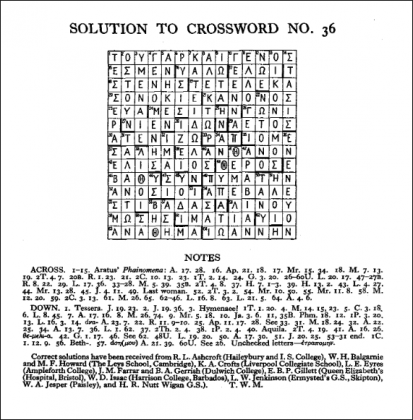Cambridge Journals Digital Archive webinar, Wednesday, February 26, 2020
Cambridge Journals Digital Archive (CJDA) contains over 1.2 million articles in over 450 journals across the humanities, social sciences, and sciences. We sponsored a webinar via the Charleston Library Conference to “pull back the curtain” on this amazing resource.
Why and how was this collection put together? What decisions did Cambridge make at the beginning that have helped inform research today? What purpose does the publisher serve in digitizing, curating, and maintaining periodical content dating back centuries?
These and other questions were addressed by three members of the Cambridge Journals Editorial team.
Gavin Swanson, PhD, Editorial Development Manager, UK gave an overview: when the decision was made to collect content for CJDA in 2007, sourcing of issues was a challenge: publishers hadn’t retained print copies, as (if they thought about it at all) the thousands of print copies distributed to institutional subscribers were seen as a ‘distributed archive’.
From the beginning, everything Cambridge published in print was scanned, including covers, front- and back matter, and cited references or footnotes. Not all publishers did this originally, but as the awareness grew as to how useful this information can be, most of them do now.
Ann Avouris, Executive Publisher, Journals, US examined CJDA’s deep, impressive STM archival content. The duration and breadth of content, from mathematics to geology, psychiatry to paleobiology, and more, provides valuable material both for historical purposes and for current research. The most-cited articles in the journals Ann highlighted range in publication date from 1990 back to 1911.
Examples include early discussions of the theory of continental drift and observations of climate change; seminal papers on the foundations of quantum mechanics and paleobiology; and the evolution of the discipline of psychiatry as seen from the originally-titled The Asylum Journal, intended for those working in asylums, to the British Journal of Psychiatry, with its current-day attitudes towards psychiatric research and mental health issues.
Jamie McIntyre, PhD, Senior Commissioning Editor, Journals, UK provided usage data, citation analysis, and community insights gleaned from a few example titles in the HSS section of the archive: the most-downloaded Archaeologia article in 2019 dates from 1967, and its citations range in publication date from 1992 to 2018. Similarly, the most-downloaded article in the Journal of Hellenic Studies dates from 1982, and has been cited in new articles annually since 2005; in 2019, it had 37 citations in the Web of Science, and 44 in Scopus.
Community insights can be obtained by looking at advertisements, membership lists, editorial board members – and the crosswords, in Greek or Latin, published in Greece and Rome circa 1932.

You can view the entire webinar for free on the Charleston Conference website: https://charlestonlibraryconference.com/cambridge-journals-digital-archive/






